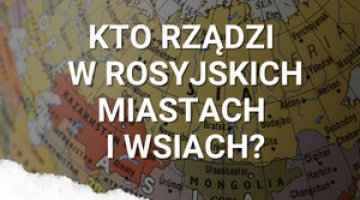Another stage of the crisis between Baku and Moscow
On 27 June, a brutal police operation in Yekaterinburg, in the Urals, resulted in the deaths of two ethnic Azerbaijanis – Russian citizens (it remains unclear whether they also unofficially retained Azerbaijani citizenship) – who were linked to organised crime groups. Several other individuals, also Azerbaijanis, were injured, and dozens were detained. Azerbaijan’s Ministry of Foreign Affairs called the police actions ‘an unacceptable act of violence’ and demanded a prompt investigation and accountability for those responsible. A protest note was handed to the Russian chargé d’affaires.
The lack of a satisfactory response from Moscow prompted an escalation of the crisis: Azerbaijan cancelled, among other measures, a meeting of the joint interparliamentary committee and a planned visit by the Russian Deputy Prime Minister. On 30 June, Azerbaijani police raided the offices of the Russian news agency Sputnik Azerbaijan and arrested two Russian journalists working for the outlet, identifying them as undercover FSB agents, along with several Azerbaijani collaborators (Azerbaijan had already revoked the agency’s accreditation in February). On 1 July, eight Russian citizens were arrested in Azerbaijan on charges related to drug trafficking and online fraud. That same day, Azerbaijan’s ambassador was summoned to the Russian Foreign Ministry, where he was handed a protest note. Russia described Baku’s actions as unfriendly and deliberately aimed at dismantling bilateral relations. Additionally, the leaders of the Azerbaijani diaspora in Yekaterinburg and Voronezh were temporarily detained.
The actions taken by the Azerbaijani side in response to the brutality of the Russian security forces are consistent with Baku’s assertive policy of projecting the country as a ‘middle power’ (see ‘Azerbaijan in 2024: dizzy with success’). In its external relations with partners, Baku applies the principle of reciprocity with exceptional consistency, and in its dealings with Moscow, it seeks to assert its agency in a clear and deliberate manner. The current escalation may serve to pressure Russia into making progress in the investigation of the shooting down of an Azerbaijani aircraft in late 2024 and/or to secure concessions in joint transport projects.
Commentary
-
Relations between Baku and Moscow have remained tense since the crash of an Azerbaijani passenger aircraft, caused by Russian shelling, on 25 December 2024 (see ‘The Azerbaijani aircraft crash: Moscow comes under pressure from Baku’). The Azerbaijani side continues to demand an official apology from Russia, punishment for those responsible, and payment of full compensation. The incidents in Yekaterinburg served as a pretext for Baku to demonstrate its assertiveness and principled stance, including in defending its nationals abroad. It is also possible that Azerbaijan is seeking to extract concessions from Russia in relation to joint infrastructure projects, including north–south routes (such as the Russia–Azerbaijan–Iran power grid).
-
The detentions and arrests carried out in Yekaterinburg did not appear to be an attempt by Moscow to exert pressure on Baku. The Russian security operation was most likely not coordinated with the Kremlin. It is not in Russia’s interest (including in the context of Israel’s June attacks on Iran, a de facto ally of Moscow and adversary of Baku) to escalate tensions with Azerbaijan. At the same time, the increasingly assertive actions taken by Baku have compelled Russia to issue a firmer response in the form of diplomatic protests and the temporary detention of influential members of the Azerbaijani diaspora.
-
Russia’s response indicates that it was caught off guard by Azerbaijan’s assertiveness. Prior to summoning the Azerbaijani ambassador to the Foreign Ministry, the messages directed towards Baku had a conciliatory tone. The Kremlin’s spokesperson expressed regret over Azerbaijan’s reaction, emphasised the need to continue efforts to clarify the incidents in Yekaterinburg, and suggested the possibility of a phone conversation between Vladimir Putin and Ilham Aliyev. Meanwhile, Russian Human Rights Commissioner Tatiana Moskalkova requested the Prosecutor General’s Office to investigate the circumstances surrounding the detention of Azerbaijani diaspora representatives. The arrests of Russian citizens in Azerbaijan may prompt the Kremlin to deliver a reciprocal – or potentially even stronger – response.





